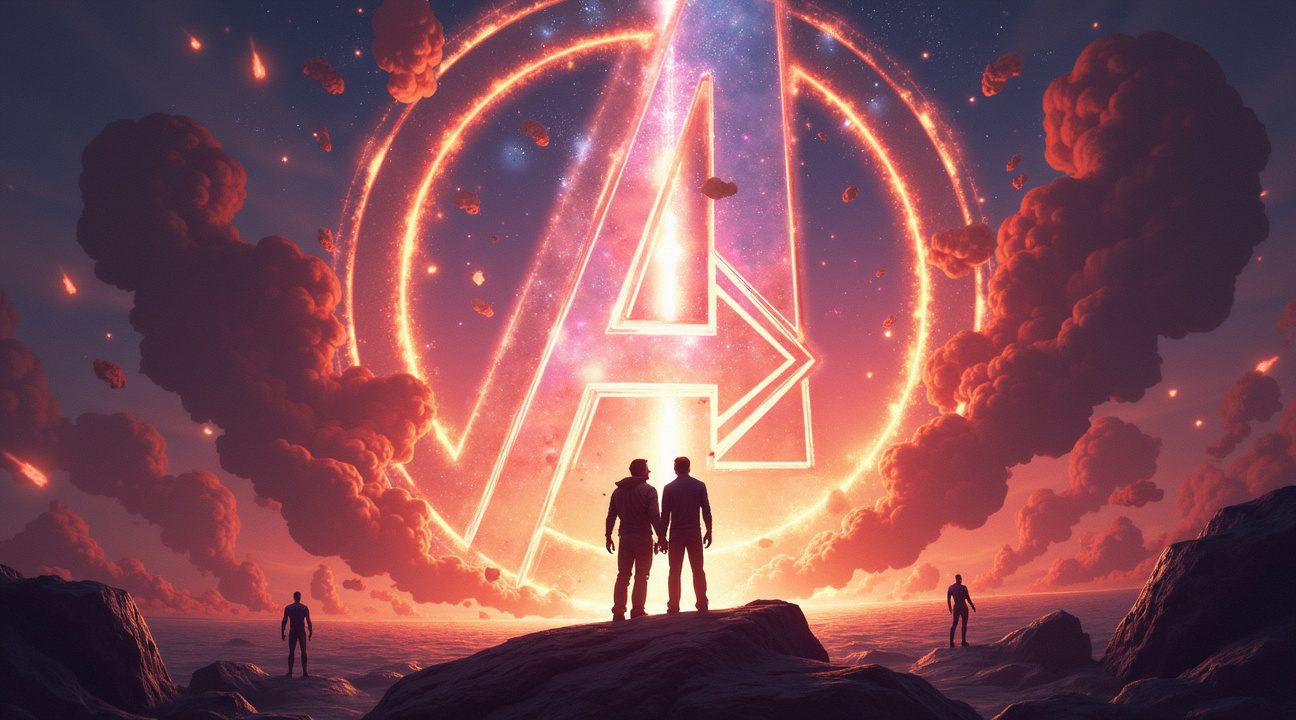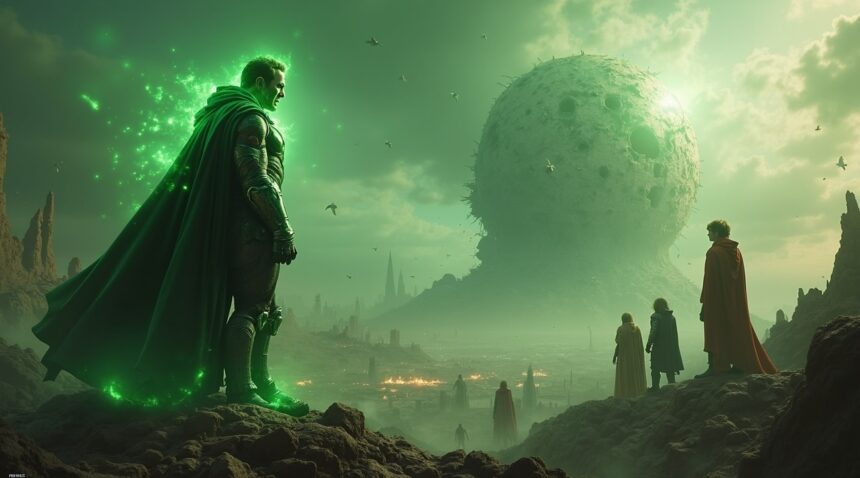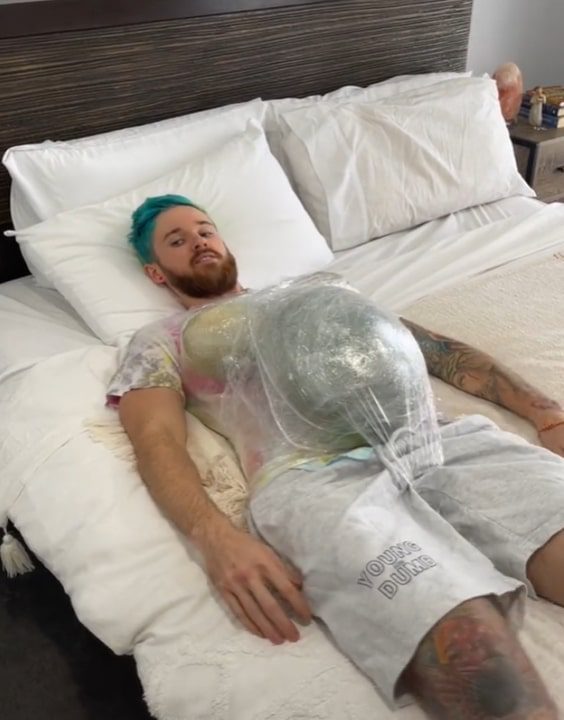Marvel Studios prepares a comprehensive MCU reset following Secret Wars that will eliminate unpopular post-Endgame elements while strategically reintroducing beloved heroes and villains into a unified timeline.
This ambitious consolidation, led by the returning Russo Brothers and featuring Robert Downey Jr.’s shocking transformation from Iron Man to Doctor Doom, promises to address fan concerns while creating unprecedented storytelling opportunities for the next decade.
Key Takeaways
- Secret Wars will merge the multiverse into one singular timeline, allowing Marvel to selectively preserve successful elements while discarding divisive storylines from recent phases.
- Robert Downey Jr. returns as the villainous Doctor Doom alongside the newly cast Fantastic Four, creating fresh character dynamics and bridging old and new MCU eras.
- The Russo Brothers will direct Avengers: Secret Wars, scheduled for December 17, 2027, as the climactic finale of Phase 6 and the entire Multiverse Saga.
- Marvel’s reset strategy eliminates the legal and narrative barriers that previously separated X-Men, Spider-Man, and other franchises, enabling unified storytelling under one creative umbrella.
- The timeline consolidation opens ten years of integrated storytelling possibilities, allowing organic crossovers between the Avengers, X-Men, Fantastic Four, and other major Marvel properties without licensing constraints.
The Secret Wars Solution
Marvel Studios faces a critical juncture after the mixed reception of recent projects. Secret Wars emerges as the perfect vehicle for course correction. The event storyline provides narrative justification for massive universe restructuring while maintaining continuity for successful elements.
Secret Wars historically represents universe-altering events in Marvel Comics. The MCU adaptation takes this concept further by using multiverse collapse as a reset mechanism. Characters and storylines that resonated with audiences survive the transition. Poorly received elements get written out of existence.
This approach allows Marvel to acknowledge past missteps without explicitly rejecting previous work. The multiverse concept provides cover for dramatic changes while preserving fan-favorite moments and characters.
Robert Downey Jr.’s Return as Doctor Doom
Robert Downey Jr.’s casting as Doctor Doom shocked the entertainment industry. His decade-long portrayal of Tony Stark/Iron Man defined the MCU’s foundation. His return as Marvel’s greatest villain creates unprecedented dramatic possibilities.
The multiverse concept enables this transformation. Downey Jr. can portray a version of Tony Stark who chose a different path or an entirely separate character sharing the actor’s likeness. This casting choice bridges the gap between the MCU’s original phases and its future direction.
Doctor Doom’s presence alongside the Fantastic Four establishes immediate gravitas for Marvel’s First Family. Downey Jr.’s star power ensures audience investment in these characters from their debut. His villain portrayal promises to contrast dramatically with his heroic Iron Man legacy.
Timeline Consolidation Strategy
The multiverse collapse during Secret Wars creates one unified timeline containing all Marvel properties. This consolidation eliminates the licensing complications that previously kept characters separate. X-Men can interact with Avengers. Spider-Man joins team-ups without corporate negotiations.
Marvel Studios gains complete creative control over character interactions. Previous films from other studios either get incorporated into the new timeline or erased entirely. The studio retains flexibility to honor successful elements from Fox’s X-Men films while discarding problematic storylines.
This strategy mirrors what Marvel Comics accomplished during Crisis on Infinite Earths at DC Comics. The company creates a clean slate while preserving beloved characters and relationships. Fans get fresh starts for disappointing recent storylines while keeping cherished elements intact.
The Russo Brothers’ Return
The Russo Brothers return to direct Avengers: Secret Wars after their successful work on Infinity War and Endgame. Their proven ability to balance multiple characters and storylines makes them ideal for this universe-reshaping event. They understand the emotional weight required for such a massive undertaking.
Their previous films demonstrated expertise in handling ensemble casts and complex plotting. Secret Wars demands similar skills on an even larger scale. The directors must juggle not just individual character arcs but entire universe restructuring while maintaining audience engagement.
The December 17, 2027 release date provides ample time for proper preparation. The Russo Brothers can carefully plan character interactions and story beats across multiple phases leading to this climactic event.
Future Storytelling Opportunities
The unified timeline creates unprecedented possibilities for the next decade of Marvel films. Organic crossovers become possible without complex legal negotiations. Characters can appear in unexpected combinations based purely on storytelling merit.
X-Men integration particularly excites fans. Mutants can finally interact with established MCU heroes. Wolverine might team up with Spider-Man. Storm could join the Avengers. These interactions were previously impossible due to licensing restrictions.
The Fantastic Four’s introduction alongside these changes establishes them as equals to existing heroes. Their cosmic adventures can intersect with street-level heroes and space-based storylines. Doctor Doom’s presence creates immediate conflict opportunities across multiple franchises.
Addressing Fan Concerns
Recent MCU phases faced criticism for inconsistent quality and unclear direction. Secret Wars provides opportunity to address these concerns directly. Unpopular storylines get erased while successful elements receive reinforcement.
The multiverse concept allows Marvel to experiment with different character interpretations. If audiences reject certain changes, future films can explain variations through alternate universe mechanics. This flexibility reduces creative risk while maintaining storytelling ambition.
Character development receives renewed focus through this reset. Heroes get fresh starts without abandoning their core identities. Relationships can evolve organically without being constrained by previous missteps or contractual limitations.
Industry Impact
Marvel’s reset strategy influences the entire entertainment industry. Other studios observe how Marvel handles universe restructuring and fan expectations. The success or failure of this approach will guide future franchise decisions across Hollywood.
The integration of previously separate properties demonstrates the value of unified creative vision. Studios may prioritize acquiring complete character rights rather than sharing licensing agreements. This shift could reshape how intellectual property gets developed for film and television.
Secret Wars’ ambitious scope raises the bar for event films. Audiences will expect similar universe-altering consequences from major franchise entries. Other studios must match this level of storytelling ambition to compete effectively.
The MCU reset through Secret Wars represents Marvel Studios’ most ambitious undertaking since the original Avengers film. The combination of timeline consolidation, strategic casting, and experienced direction positions the franchise for another decade of success. Fans await this universe-reshaping event that promises to honor the past while embracing an unlimited future.
Robert Downey Jr. Returns as Doctor Doom While Classic Heroes Get New Timeline Home
Robert Downey Jr.’s return to the Marvel Cinematic Universe represents one of the most shocking casting decisions in superhero cinema history. After his emotional farewell as Tony Stark in “Avengers: Endgame,” fans never expected to see the actor return to Marvel Studios. However, his confirmed role as the villainous Doctor Doom creates an entirely different dynamic that promises to redefine his relationship with the franchise.
The actor’s transformation from beloved hero to menacing villain coincides with the introduction of the Fantastic Four to the MCU. Pedro Pascal will lead the team as Reed Richards, joined by Vanessa Kirby as Susan Storm, Joseph Quinn as Johnny Storm, and Ebon Moss-Bachrach as Ben Grimm. This casting brings fresh energy to characters that have struggled to find their footing in previous film adaptations.
Timeline Reset Brings Together Classic Characters
Secret Wars creates the perfect opportunity for Marvel Studios to consolidate its multiverse storylines into a cohesive new timeline. The Thunderbolts will play a significant role in this transition, featuring Florence Pugh as Yelena Belova, Sebastian Stan as Bucky Barnes, David Harbour as Red Guardian, and Wyatt Russell as John Walker. These characters bridge the gap between the old MCU and its post-Secret Wars iteration.
The timeline reset opens unprecedented possibilities for character interactions. Fan-favorite heroes like Thor, Peter Parker, Wolverine, and She-Hulk can now coexist alongside both classic and reimagined villains. Doctor Doom, Kang the Conqueror, The Beyonder, Magneto, Molecule Man, and The Lizard all gain new relevance within this consolidated universe.
Marvel Studios has expressed openness to recasting major heroes when necessary, pointing to other successful franchise reinventions as precedent. DC’s approach with their new Superman demonstrates that audiences readily accept fresh interpretations of iconic characters. This strategy allows Marvel to retain beloved performers while introducing new talent to carry these roles forward.
The studio’s willingness to make bold casting choices extends beyond just bringing back familiar faces. By combining established MCU characters with newly introduced heroes and villains, Marvel creates opportunities for storytelling that weren’t possible within the constraints of the previous timeline structure. This approach ensures that both longtime fans and newcomers can find entry points into the evolving Marvel universe while maintaining the emotional connections that have defined the franchise’s success.
Marvel’s Reset Strategy Eliminates Divisive Post-Endgame Elements
Recent MCU projects released after Endgame have struggled to capture the magic that made the original Avengers saga so compelling. Films and Disney+ series featuring newer characters simply haven’t generated the same level of excitement that audiences experienced with Iron Man, Captain America, Thor, Hawkeye, Black Widow, and Hulk. Box office numbers tell a clear story – many post-Endgame releases have underperformed compared to their predecessors, signaling a disconnect between Marvel’s creative direction and fan expectations.
Kevin Feige has openly acknowledged that Marvel’s attempts to move beyond the original Avengers lineup resulted in diminished fan engagement. This recognition represents a significant shift in Marvel’s approach, as the studio president rarely admits strategic missteps so directly. The evidence supports his assessment – projects like Captain America: Brave New World and Thunderbolts, while introducing fresh faces, failed to generate the cultural impact that earlier MCU entries achieved effortlessly.
Streamlining Continuity Through Strategic Elimination
Marvel’s upcoming reset strategy focuses on discarding storylines that didn’t resonate with audiences while preserving elements that worked. This approach allows the studio to maintain successful character arcs and fan-favorite moments while eliminating controversial or poorly received narrative threads. The process involves careful evaluation of which characters, plot points, and story directions contributed to the MCU’s declining momentum.
Secret Wars provides the perfect narrative vehicle for this massive undertaking. The multiverse-shattering event creates natural opportunities to reshape reality, bringing back beloved characters while leaving behind elements that created division among fans. Recent industry discussions suggest this reset will be comprehensive, addressing both character lineup issues and broader narrative problems that emerged in recent years.
Establishing a Unified Universe
The reset strategy prioritizes creating a cohesive universe that eliminates the fragmentation that plagued recent MCU phases. Instead of multiple competing storylines and disconnected character arcs, Marvel aims to establish clear narrative threads that connect all projects meaningfully. This unified approach should restore the sense of shared universe storytelling that made the MCU’s early phases so successful.
Marvel’s recent confirmations about continuing certain character storylines indicate selective preservation of successful elements. The studio isn’t abandoning everything from the post-Endgame era – they’re surgically removing problematic elements while building on proven foundations. This calculated approach should address fan concerns while maintaining creative momentum for future projects.
Russo Brothers Return for December 2027 Multiverse Saga Finale
Avengers: Secret Wars arrives in theaters on December 17, 2027, marking the dramatic conclusion of the Multiverse Saga and the finale of Phase 6. Marvel Studios has entrusted this monumental project to the Russo brothers, who previously delivered the critically acclaimed Avengers: Infinity War and Endgame. Their return signals Marvel’s commitment to bringing the same epic storytelling and emotional depth that made those films cultural phenomena.
Kevin Feige has clarified that Secret Wars won’t deliver a complete reboot of the MCU. Instead, the film will strategically merge the multiverse into one singular timeline, creating a fresh foundation for future stories. This approach allows Marvel to retain successful elements while streamlining continuity moving forward.
The film’s December 2027 release date continues the Avengers franchise’s impressive theatrical legacy. Previous entries debuted in 2012, 2015, 2018, and 2019, with the upcoming Avengers: The Kang Dynasty scheduled for 2026 before Secret Wars closes out the saga. Hollywood labor strikes and the massive production scope of these multiversal epics have contributed to extended development timelines, but they’ve also allowed for more comprehensive planning.
Strategic Timeline Consolidation
Marvel’s approach to this multiverse merger addresses several key storytelling challenges:
- Eliminates confusing timeline branches that have accumulated throughout recent phases
- Provides opportunities to reintroduce beloved characters who were previously written out
- Creates space for villain returns without complicated resurrection storylines
- Establishes clearer narrative boundaries for future MCU projects
- Allows for selective retention of popular storylines while discarding less successful elements
The Russo brothers’ track record with ensemble storytelling makes them ideal candidates for managing this complex narrative convergence. Their ability to balance multiple character arcs while maintaining emotional stakes proved crucial in previous Avengers films. Secret Wars presents an even greater challenge, requiring them to weave together storylines from across the multiverse while setting up the MCU’s future direction. Industry experts suggest this strategic reset could address ongoing MCU struggles by providing a clean slate for character development and world-building.
This timeline consolidation represents more than just narrative housekeeping. It’s a calculated move to revitalize the franchise while honoring its established legacy, potentially bringing back fan-favorite elements that have been absent from recent phases.

Battleworld Creation Follows 2015 Comic Storyline for Universe Collapse
Multiverse Destruction Sets Stage for Selective Universe Rebuilding
The foundation of Avengers: Secret Wars draws directly from the 2015 comic storyline where The Beyonders orchestrate devastating incursions that ultimately destroy the entire multiverse. I see this narrative choice as Marvel Studios’ strategic approach to address the franchise’s current challenges while preserving its most valuable assets. Doctor Doom emerges as the unlikely savior who reconstructs reality by assembling fragments from destroyed universes into Battleworld, creating an unprecedented opportunity for selective universe curation.
This Battleworld concept provides Marvel Studios with remarkable flexibility to cherry-pick the most successful elements from different realities while leaving behind less popular storylines. Kevin Feige confirms that this reset honors past continuity while enabling fresh starts for beloved teams. The process allows for careful integration of previously separate franchises, bringing together characters that couldn’t coexist under the old multiverse structure.
The selective reconstruction means beloved characters from Fox’s X-Men universe and Sony’s Spider-Man films can seamlessly join the main timeline. Multiple Spider-Man variants, fan-favorite X-Men iterations, and other cherished characters from different realities may find new homes in the reconstructed universe. I believe this approach addresses fan concerns about ongoing MCU struggles by incorporating proven successful elements while discarding problematic storylines.
The Battleworld framework offers several key advantages for Marvel’s future:
- Complete narrative flexibility to reintroduce classic teams like X-Men and Fantastic Four
- Ability to resurrect popular characters without complicated explanations
- Opportunity to streamline complex multiverse storylines into manageable narratives
- Platform for bringing together the best elements from different film franchises
This strategic reset doesn’t erase the past but rather transforms it into building blocks for a stronger foundation. Characters who resonated with audiences can return with enhanced roles, while less successful elements fade into obscurity. The approach ensures that classic Avengers, newly integrated X-Men, and the Fantastic Four can all operate within the same reality without the complications that previously separated them across different studios and timelines.
Related video:
https://www.youtube.com/watch?v=phyU4tG_6zE
Ten Years of Unified Storytelling Awaits After Timeline Merge
Marvel’s upcoming unified timeline represents a massive shift that will fundamentally reshape how I experience superhero storytelling for the next decade. Kevin Feige confirms that this strategic consolidation will eliminate the legal and narrative barriers that have kept beloved characters separated across different studios and universes.
Strategic Character Integration and Recasting
The studio’s approach to character transitions will be calculated and respectful. Feige emphasized that iconic heroes will undergo deliberate recasting processes, striking a careful balance between honoring established character histories and injecting fresh energy into familiar roles. This method ensures that longtime fans won’t feel alienated while new audiences can connect with updated interpretations.
Secret Wars will serve as both the symbolic and literal conclusion to multiverse chaos. I expect this event to function as a clean slate moment, allowing Marvel to move forward without the complex web of alternate realities that have defined recent phases. The shift marks a clear departure from multiverse storytelling that has sometimes confused casual viewers.
Enhanced Team Dynamics and Franchise Integration
The unified timeline opens unprecedented opportunities for complex team dynamics and innovative character arcs. Marvel can now seamlessly integrate flagship teams including:
- The Avengers
- X-Men
- Fantastic Four
- Spider-Man characters
…into one cohesive shared universe. This integration promises storytelling possibilities that were previously impossible due to licensing restrictions.
I anticipate seeing crossover events that feel organic rather than forced, with characters naturally intersecting across different franchise properties. The removal of these artificial boundaries means writers can craft stories that serve the narrative first, rather than working around legal constraints. This freedom should result in more compelling character interactions and plot developments.
The decade ahead will likely feature interconnected storylines that build upon each other in ways the MCU hasn’t achieved since the Infinity Saga. With all major Marvel properties under one creative umbrella, Marvel’s future direction can focus on character development and world-building rather than navigating complex licensing agreements. This unified approach should deliver the cohesive storytelling experience that fans have been craving since the multiverse era began fragmenting the shared universe concept.
Sources:
GamesRadar – “Avengers: Secret Wars release date, cast, plot, and news”
Screen Rant – “Avengers: Secret Wars MCU Reboot Franchise Fix”
Marvel Cinematic Universe Wiki – “Avengers: Secret Wars”
Marvel.com – “Avengers: Secret Wars”
IMDb – “Avengers: Secret Wars”


